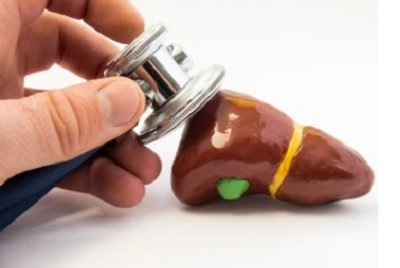Hepatic dysfunction of liver in critically ill COVID-19 patients
June 03, 2021 | Thursday | Views
In COVID-19, there is a considerable increase in the levels of IL-2, IL-17, and TGFα causing a hyperinflammatory state and cell death which ultimately leads to organ damage
Image credit: Shutterstock.com
The second wave of COVID-19 has been an unprecedented health emergency in India, impacting millions of people and thus, causing considerable economic destabilisation. The situation is still very grim and recent studies have shown a range of disorders associated with the respiratory tract. However, the possible manifestations of the disease may also involve pathologies of the gastrointestinal tract.
When the liver function is affected, the cytopathic effect of the virus, uncontrolled immune reaction, sepsis or drug-induced liver injury has hepatic associations in COVID-19. In critically ill patients, hepatic dysfunction is significantly high and is associated with poor outcomes. Additionally, some antiviral drugs like Remdesivir and tocilizumab which are used in the management of COVID-19 patients, increase the risk of hepatotoxicity. In patients receiving lopinavir/ritonavir, a higher proportion of enzyme elevation is observed.
Recently published studies have demonstrated that among COVID-19 patients, around 2-11 per cent of patients have underlying chronic liver disease while 14-53 per cent develop hepatic dysfunction particularly those affected with severe COVID-19. It is observed that Hepatic dysfunction is higher in critically ill patients and has no immunity.
In COVID-19, there is a considerable increase in the levels of IL-2, IL-17, and TGFα causing a hyperinflammatory state and cell death which ultimately leads to organ damage. Thus, managing both apoptosis and the hyper-immune inflammatory response is essential while managing COVID-19. Ursodeoxycholic acid (UDCA), a secondary bile acid, is an established therapy to reduce inflammation; it is well-known to reduce the elevated levels of pro-inflammatory cytokines such as TNFα, IL-1, IL-2, and IL-6. Since UDCA is a natural bile acid, it shows no measurable toxicity, passes the blood-brain barrier and has oral administration. Apart from its anti-inflammatory property, it also has cytoprotective, antioxidant and anti-apoptotic effects. It is an established treatment as a liver-protective agent in serious problems such as drug-induced liver injury for treatment of several cholestatic liver diseases such as primary biliary cholangiopathy.
There are no pre-clinical data for UDCA treatment in COVID-19. Based on the vast literature on the therapy and its benefits, it can be suggested to use UDCA for COVID-19 patients who have early symptoms as a prophylactic treatment.
This can be a negative statement from Remdesivir perspective as we were avoiding participating in the media opportunities which were on similar lines.
Dr Niranjan Banka, Chief Hepato-Gastroenterologist, Bombay Hospital Institute of Medical Sciences









